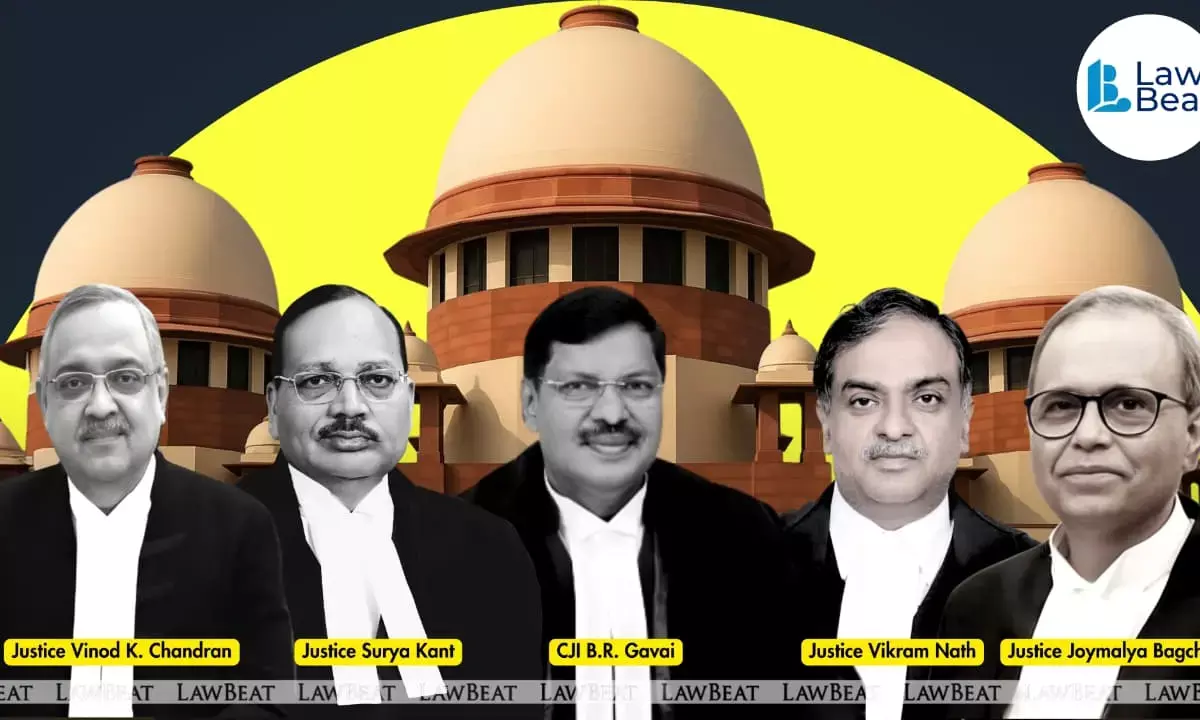What incentive for judicial officers to work hard if they lose out because of seniority? Supreme Court asks

Supreme Court has delivered its verdict on issue of promotional avenues for judges.
The Supreme Court today mulled over the incentive for junior cadre judges while hearing the issue concerning career stagnation faced by judicial officers across the country. "If you give so much incentive to the seniority of direct recruits, our junior cadre will only work for competing", Justice Surya Kant remarked today.
Court further questioned incentive would be left for a judicial officer, who eventually, in terms of seniority or in terms of the benefit of higher payscale, is going to loose out.
Senior Advocate Siddharth Bhatnagar joined the court's sentiment and argued that a person spending 7 years preparing for a district judge exam would not be bothered about ACRs. "We are dealing with 50% of the cadre here, for them seniority and promotion is a very important aspect...", he added.
A five judge bench led by CJI BR Gavai is deciding on the criteria for determining seniority in the cadre of higher judicial service.
On October 7, a Chief Justice of India led bench of Supreme Court had referred the issue concerning career stagnation faced by judicial officers to a five-judge Constitution bench. The bench comprising Chief Justice of India BR Gavai and Justice K Vinod Chandran had noted that a comprehensive solution is needed to address the limited promotional avenues available to those who join the judiciary at entry-level positions.
"A young judicial officer who enters service at the age of 25 or 26 and retires only as an additional district judge will naturally feel some sort of heartburning," the CJI had said. This order was passed by the bench while hearing the All India Judges Association case on issues related to service conditions, pay scales, and career progression of judicial officers. Court noted that there exist divergent views expressed by several high courts and state governments in their responses to the notices earlier issued by the Supreme Court on the issue.
“Some high courts have taken a view that on account of the prevailing situation, the judges who initially enter the service as civil judge, junior division are not in the position to reach up to the post of district judges,” the CJI observed. With a view to address this anomalous situation, where judicial officers who begin their careers as Judicial Magistrate First Class (JMFC) often retire without ever reaching the post of principal district judge (PDJ), the court referred the case to a Constitution Bench. The court was told that such a move would unfairly disadvantage meritorious candidates aspiring for direct recruitment as district judges.
It is to be noted that the Supreme Court Constitution Bench recently had ruled that judicial officers who had completed seven years of practice at the Bar before joining service are eligible to be appointed as District Judges through direct recruitment. Delivering the verdict, Chief Justice BR Gavai, heading the five-judge Bench, had said Article 233 of the Constitution must be read as a whole and not in parts.
The Court held that adopting the interpretation in Rameshwar Dayal and Chandra Mohan cases would render the first part of Article 233 meaningless. “The State Government, in consultation with the High Courts, will have to frame rules for judicial officers applying for the post of District Judge,” the CJI said, adding that “an injustice has been meted out to judicial officers by depriving them of this opportunity.” The Bench clarified that the judgment will apply prospectively and will not affect selections or applications made prior to the decision.
The Court also fixed the minimum age for applying as District Judge or Additional Judge at 35 years, directing all State Governments to amend their service rules within three months.
Case Title: ALL INDIA JUDGES ASSOCIATION AND ORS. vs. UNION OF INDIA AND ORS.
Bench: CJI Gavai with Justices Surya Kant, Vikram Nath, Joymalya Bagchi and K Vinod Chandran
Hearing Date: October 28, 2025
